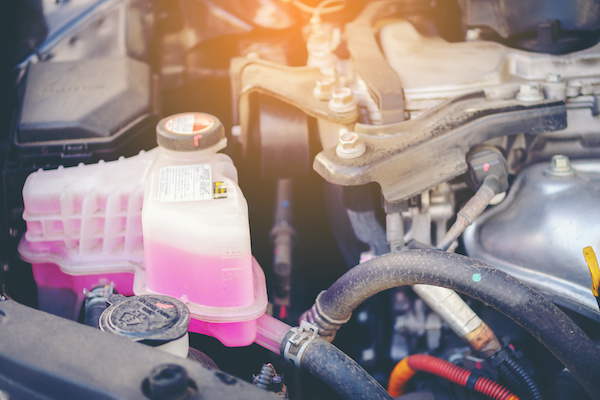
The cooling system in a vehicle plays an integral role in maintaining the engine's temperature, ensuring it runs right, and doesn't overheat. The system is made up of several different parts, each with its own important function. Let's take a closer look at what parts make up the cooling system.
- Radiator: The radiator is the most recognizable part of the cooling system. It is a heat exchanger that transfers heat from the engine coolant to the air passing through it. The radiator is typically located behind the grille at the front of the vehicle.
- Water Pump: The water pump is responsible for circulating coolant throughout the engine and the cooling system. It's usually driven by a belt connected to the engine's crankshaft.
- Thermostat: The thermostat is a temperature-sensitive valve that regulates the flow of coolant through the engine. It stays closed until the engine reaches its operating temperature, then opens to allow coolant to flow through the system.
- Coolant: Coolant, also known as antifreeze, is a combination of water and chemicals that helps regulate engine temperature. It is pumped through the engine block, absorbing heat and carrying it to the radiator for dissipation.
- Fan: The fan is responsible for drawing air through the radiator to help cool the engine. There are two types of fans: mechanical, which is driven by a belt, and electric, which is controlled by a thermostat or engine control module.
- Hoses: Hoses carry coolant between the different parts of the cooling system. Over time, hoses can become brittle and crack, leading to coolant leaks.
- Heater Core: The heater core is a small radiator located inside the passenger compartment of the vehicle. It uses hot engine coolant to heat the cabin.
- Radiator Cap: The radiator cap seals the cooling system and helps regulate pressure. It also has a pressure relief valve that opens if the pressure gets too high.
Regular maintenance of the cooling system is crucial to keep your vehicle running smoothly. If any of these parts fail or malfunction, it can lead to overheating and potentially serious engine damage. We welcome you to University Chevron for cooling system inspections and repairs!